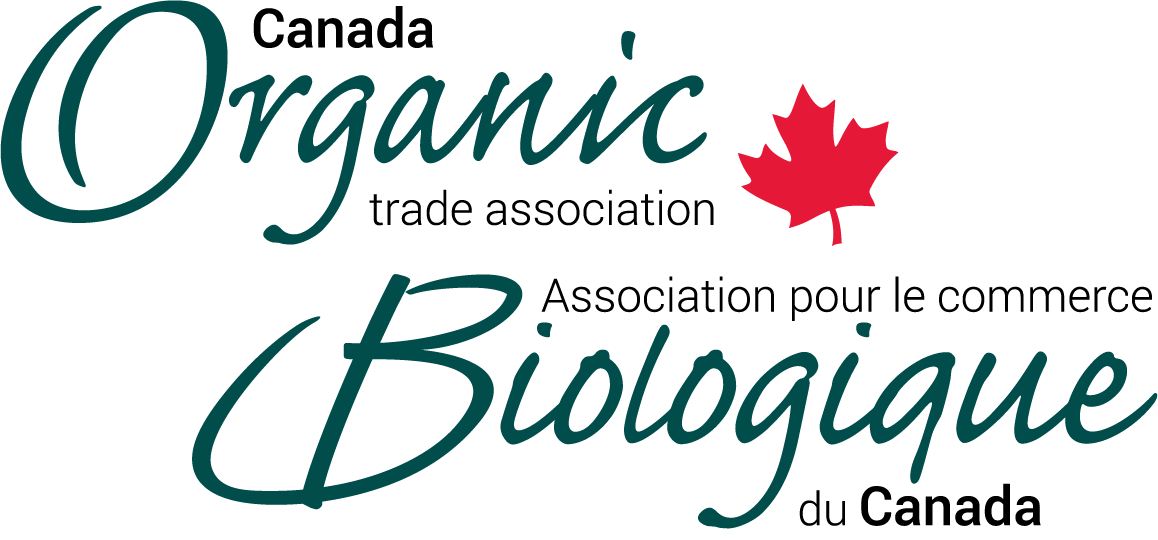For Immediate Release
New Organic Action Plan charts course to grow Canada’s organic food and farming sector and strengthen competitiveness
Canada’s organic sector calls on government to adopt the plan and unlock the sector’s full potential
Ottawa – October 29, 2025 — The Canadian Organic Alliance, which includes Canada Organic Trade Association, Canadian Organic Growers and the Organic Federation of Canada, today released a landmark Organic Action Plan for Canada. The plan calls on governments to adopt a coordinated strategy to unlock Canada’s organic sector’s growth potential, strengthen competitiveness, and build a resilient domestic supply chain that can meet rising consumer demand.
The Organic Action Plan outlines the actions needed to position the organic sector as an important pillar of Canada’s agri-food economy. Developed collaboratively by the three organizations with broad input from the sector, the plan proposes a public–private approach with shared commitments from industry and government to drive growth, investment, and coordination across jurisdictions.
“Organic agriculture represents one of Canada’s most underused economic opportunities,” said Karen Murchison, Executive Director, Canadian Organic Growers. “This plan gives the government a clear roadmap to unlock billions in net farm income and help Canadian farmers and processors compete globally while driving growth here at home.”
Organic food and farming are powerful economic and policy tools that can advance Canada’s goals for growth, trade, and environmental performance, yet Canada currently has no strategy to realize their full potential. The Canadian organic market reached $9.75 billion in 2024, growing more than eight percent since 2023, making it the fifth largest in the world in a global market now worth more than $200 billion. However, Canadian organic production is not keeping pace: domestic production has stagnated, imports are rising, and Canadian processors are struggling to source Canadian organic ingredients.
At the same time, Canada’s competitors have already recognized organic’s potential. The U.S. invests eight times more per acre in its organic sector than Canada does, while the European Union invests about 200 times more, according to a recent report from the Organic Task Force.
“With shifting global trade dynamics and strong consumer demand, organic policy must shift from an enforcement-based approach to a strategic driver of economic growth,” said Tia Loftsgard, Executive Director, Canada Organic Trade Association. “Canada has the standards, certification system and international credibility to lead. With the right policy framework, Canada can build supply, attract investment, and strengthen the organic value chain–while delivering the environmental and social benefits that consumers increasingly seek.”
“Riverside Natural Foods supports the National Organic Action Plan because it aligns with our purpose to inspire a healthier and more compassionate world where access to good food is a reality for all,” said Salma Fotovat, Sourcing and Procurement Director and Riverside Natural Foods. “Expanding Canada’s organic capacity will strengthen domestic supply chains, help farmers thrive, and make nutritious, responsibly produced food more accessible. By investing in organic agriculture, Canada will protect its soil, water, and biodiversity while creating fair, resilient markets that serve both people and the planet. We’re committed to working with our partners to help bring this vision to life.”
The Organic Action Plan is organized around three pillars that remove barriers to growth, strengthen competitiveness and build a resilient domestic supply of organic food that can meet rising demand and deliver high-quality products at home and abroad:
-
Accelerate growth and innovation in organic production – Expand research, training, and transition supports to increase domestic productivity and supply.
-
Grow organic markets and demand – Strengthen domestic and export markets through improved processing and distribution infrastructure, public procurement and education of organic, while ensuring affordable consumer access.
-
Strengthen policy, regulatory and data infrastructure – Establish policy direction, modernize regulations and improve access to data to guide organic development and uphold organic integrity.
Together, these measures provide a framework to strengthen farm incomes, expand processing and export capacity, and secure Canada’s place in a fast-growing global market for organic products. The three organizations are ready to work with governments and partners to implement the plan and ensure organic food and farming reach their full potential as a driver of Canada’s agri-food economy.
“Canada already has the regulatory foundation for organic agriculture,” said Nicole Boudreau, Executive Director, Organic Federation of Canada. “The next step is coordinated leadership and investment to turn that foundation into growth—for farmers, processors and rural communities.”
To read the full Organic Action Plan, click here. For more information or to request a media interview, please contact:
Tia Loftsgard
Executive Director, Canada Organic Trade Association
613-482-1717 ext 200
